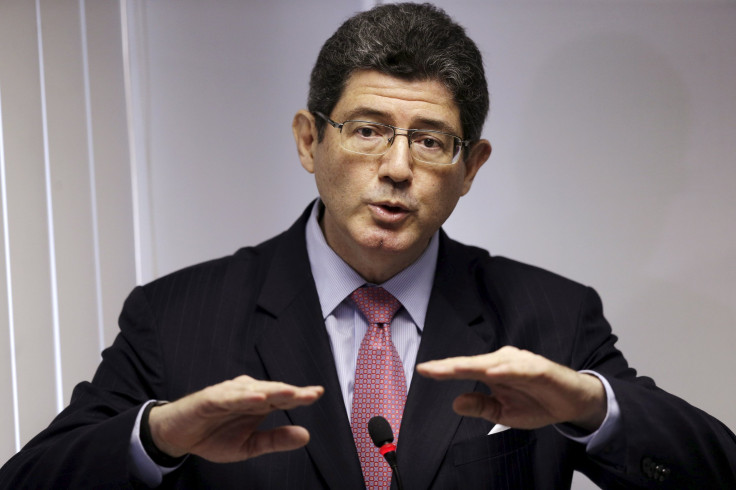Brazil Economy Update: Tax Increases, Austerity Measures Would Cut Social Programs, Close Budget Deficit

Brazil could cut spending and increase taxes for a total of 65 billion reais, or $16.9 billion, to close a budget deficit that led to a downgrade of the country’s credit rating last week. The austerity measures that must be approved by congress are aimed at popular health and low-cost housing programs, investments in infrastructure and agricultural subsidies, as well as salaries and bonuses for government employees. “We are living through difficult times and we have to adjust a lot of things,” Finance Minister Joaquim Levy said at a news conference on Monday, the Guardian reported.
Standard & Poor’s downgrade last week of Brazil's economy - the world's seventh-largest - could sway lawmakers who have been reluctant to embrace spending cuts in the past. Brazil's recession has seen President Dilma Rousseff’s popularity sink to single-digits after her re-election last year. Rousseff and her leftist Workers’ Party had long opposed cuts to Brazil’s social programs. But faced with a sinking economy, Rousseff had already ordered some US$21.6 billion in spending cuts.
"The government is now scraping the barrel in an effort to plug its budget hole," Capital Economics, a London research house, said in a note to clients.
Spending cuts will likely further hurt Rousseff's ratings. “Unfortunately, we’re looking at a long period where the economy will be very bad and there will be limited scope to make progress on strategic issues,” Flavio Serrano, senior economist at investment bank BESI Brasil told Bloomberg in July.
Brazil's GDP is projected to shrink 1.49 percent this year, while Brazil’s basic interest rate has soared to 14.25 percent. Inflation currently tops 9.5 percent.
People need to see that policy makers are “gradually building a new fiscal governance in Brazil,” Octavio de Barros, chief economist at Banco Bradesco SA, in São Paulo, told the Wall Street Journal.
© Copyright IBTimes 2025. All rights reserved.






















